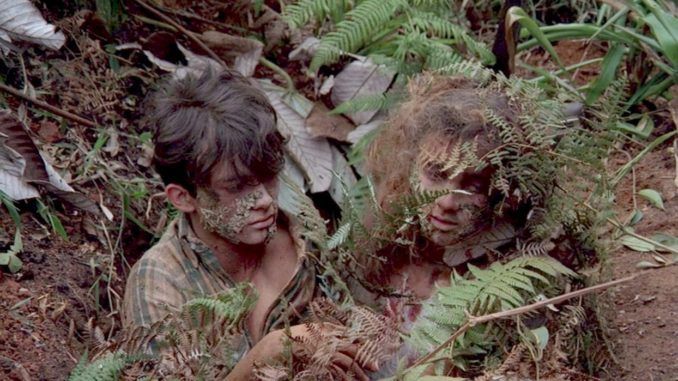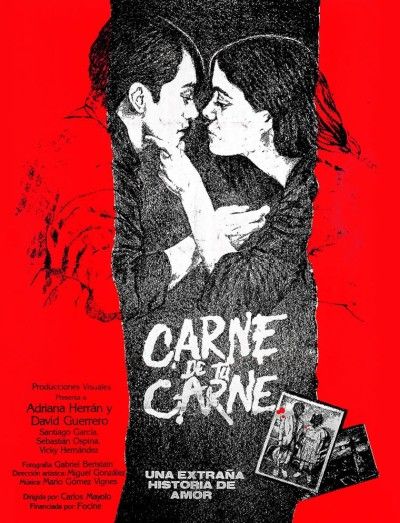
Rating: C-
Dir: Carlos Mayolo
Star: Adriana Herrán, David Guerrero, Santiago García, Sebastian Ospina
a.k.a. Bloody Flesh
The rating above likely falls into the category of “It’s not you, it’s me.” This film is, very clearly, using horror tropes as an allegory, to make some kind of social commentary about how things were, in fifties Colombia. The problem is, I have absolutely no idea how things were, in fifties Colombia, and the film has no interest in telling me. I can’t blame the movie or its maker for this decision. The film is clearly made for an audience who know where it’s coming from, and have the necessary background. I do not. and found a great deal of this baffling and incomprehensible – albeit sometimes in an interesting way, if that makes sense.
It begins with the death of a family’s matriarch, and at the reading of the will, we discover the black sheep of the family was Enrique, who was shunned for being a Communist. The family has to decamp out of Cali after a massive explosion (some reviews call it an earthquake, but it clearly isn’t. It was a real thing, when army ammo trucks blew up, leading to a four-figure death toll) renders the area uninhabitable. Moving out to their country home, near Enrique, things then get weird. Andres Alfonso (Guerrero) and his half sister Margareth (Herrí¡n) begin an incestuous relationship, watched over by ghosts of the family’s past – and a goose. A baby vanishes from its crib. Oh, yeah: and a small-scale zombie apocalypse breaks out.
 What does it all mean? I haven’t a clue. I’m going to guess it’s vaguely left-leaning, mostly because Enrique appears to be about the only semi-normal person here, and South American film-makers tend to skew heavily in that direction. The military, and those wielding guns generally, are treated sceptically. There’s a shocking moment at the beginning, when a real turkey genuinely gets its head blown off, and towards the end, the army seem to round up most of the village. Exchanges like,
What does it all mean? I haven’t a clue. I’m going to guess it’s vaguely left-leaning, mostly because Enrique appears to be about the only semi-normal person here, and South American film-makers tend to skew heavily in that direction. The military, and those wielding guns generally, are treated sceptically. There’s a shocking moment at the beginning, when a real turkey genuinely gets its head blown off, and towards the end, the army seem to round up most of the village. Exchanges like,
“It’s great to have a general in the family.”
“Yes, but not in power.”
Are also evidence towards that conclusion. But I’d need to do significant swotting up on Wikipedia to have any real idea about the specifics.
As an outsider, what’s left is a series of increasingly unsettling (though unless you’re in PETA, never more than moderately disturbing) events, without anything to tie them together, or useful context in which they can be placed. The film just… ends, without anything close to an explanation or even a wrap-up. Anything I could provide would simply be guessing. Do I know more about how things were, in fifties Colombia, than I did when I went in? Doubtful. It certainly does not live up to its alternate title, given the general lack of blood or flesh present, and the opening dedication, to Roger Corman and Roman Polanski, only deepens the sense of overall weirdness. But it could only be made in South America, where turkeys are cheap.
